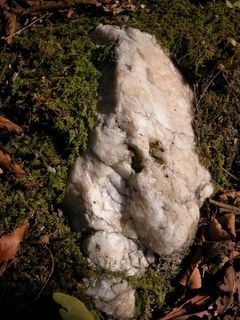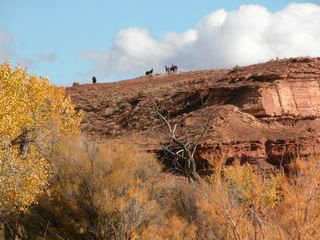Where do the old gods go when they retire?
When velvet ropes define museum spaces
In front of obelisks once crowned by fire?
When names are unremembered, and their faces?
Not that they do not have their worshippers.
They do. Those who still see them, and who gaze
At them with interest, and unlike us
Count their own wisdom not in years but days.
We recognize this worship in his eyes
By something in their colour, depth and size,
Like windows on to lawns where if you waited
Long enough you might expect to see
The gods happy again, and quietly
Pottering in the garden they created.
--John Fuller,
Ghosts
I read the first three volumes in the new Canongate myth series this month and am now anxious for the next batch of myth books in the series to become available. In the meantime I'll have to console myself with the books L.'s mom brought us from her trip to Greece and Turkey and gave to us on Thanksgiving:
Greek Mythology and Religion by Maria Mavromataki and
Pergamon by Turgay Tuna. She now totally regrets the day she spent back in the apartment in Berlin to rest her feet while L. and S. and I went to the Pergamon Museum.
Margaret Atwood's
The Penelopiad was my favorite of the mythology books and the one I most look forward to rereading. Penelope tells her side of the story, with enough of Homer's own ambiguity to leave a doubt whether she's telling the truth or spinning an Odysseus-size yarn and with an abundance of wit: "the gods often mumble;' "nothing more preposterous than an aristocrat fumbling around with the arts;" "happy endings are best achieved by keeping the right doors locked and going to sleep during the rampages;" "there is always some servant or slave or nurse or busybody ready to regale a child with the awful things done to it by its parents when it was too young to remember;" and her scathing assessment of Odysseus: "the manners of a small-town big shot." The chorus of "hanged girls" whose song and dance numbers alternate with Penelope's tale changes from being amusing asides to powerful indictments of "the standards of behavior" of ancient times during a 21st-century trial that devolves into a showdown between the Furies and Pallas Athena.
(For some inexplicable reason I skipped Atwood's
Oryx and Crake, but I'll be catching up with it soon, especially since she has a new book coming out next month.)
Jeanette Winterson's
Weight, a retelling of the Atlas and Heracles myth, is almost a match in the wit department with the Atwood and concerns itself with whether the burdens we bear are put upon us by fate or are self-inflicted: can we remove the world from our shoulders? And Karen Armstrong manages to write a brief overview of myth in
A Short History of Myth that contains fresh bits of perspective and insight and the references she cites will make for great further reading.
I finished Walter Kirn's
Mission to America over the weekend. It was great fun while it lasted, but left a bad aftertaste: did I learn anything new? did I care about any of the characters? Uh, no. A nice diversion, that's all.
I've started Gretch Moran Laskas'
The Midwife's Tale because it seems like forever since I've read anything set in the Appalachians.
I spent way too much time cataloging books at
Library Thing over the holiday, but at least now I've broken into the top 100 libraries: currently I'm 88th. Although S. claims having books off the shelves for cataloging purposes makes the house seem too small, at least shelves are getting dusted, and I'm locating books that had gone missing for quite some time. I still haven't figured out where David Sedaris'
Me Talk Pretty One Day has run off to, but most of the other awol books have been accounted for. I think I'm about halfway through the cataloging project, but doubt I'll do much more until after Christmas.


























